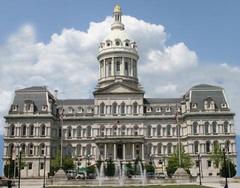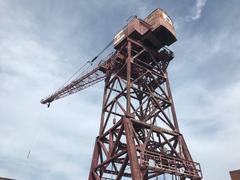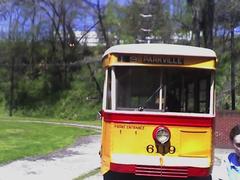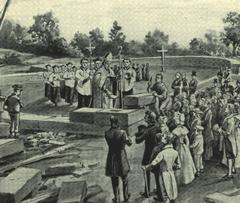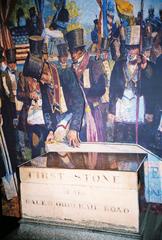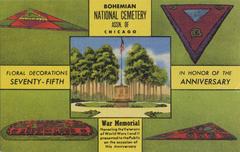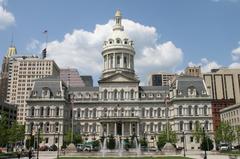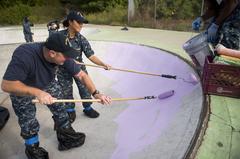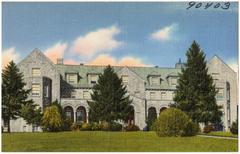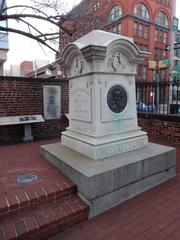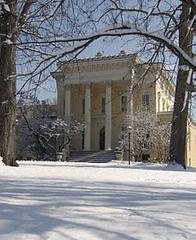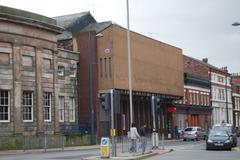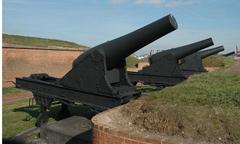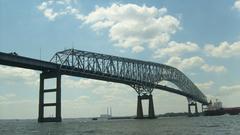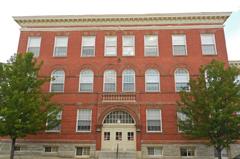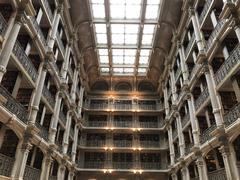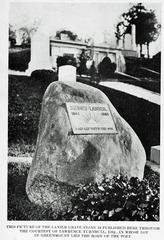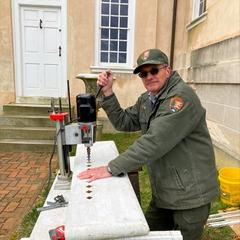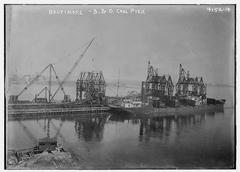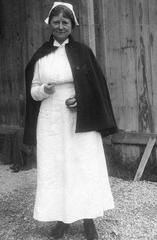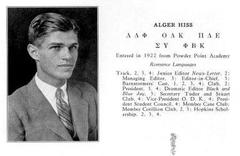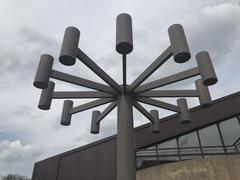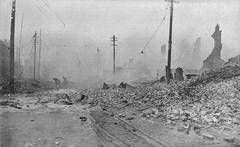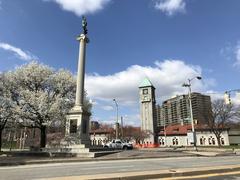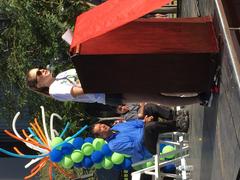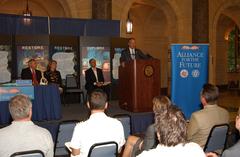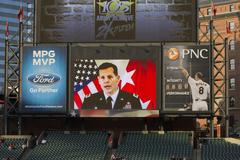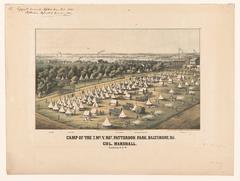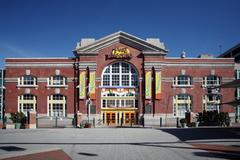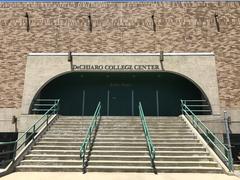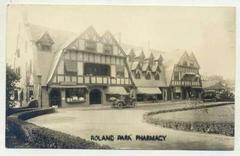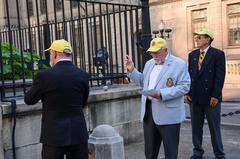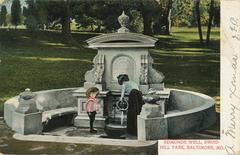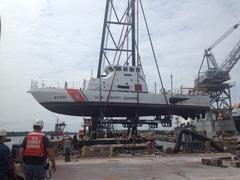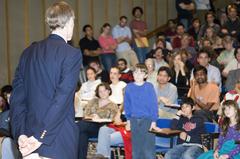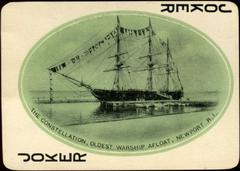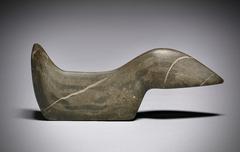
Sinai Hospital Baltimore Visiting Hours, Visitor Information, and Historical Insights
Date: 03/07/2025
Introduction
Sinai Hospital of Baltimore is a cornerstone of medical innovation, community service, and cultural inclusivity in Maryland. Established in 1866 as the Hebrew Hospital and Asylum, the institution was founded to address healthcare disparities affecting Baltimore’s Jewish community. Over more than 150 years, Sinai has grown into one of Maryland’s largest teaching hospitals, renowned for both pioneering medical advancements and a steadfast commitment to serving diverse populations. This comprehensive guide explores the hospital’s history, landmark achievements, visitor policies, accessibility, and nearby attractions—offering essential information for patients, healthcare professionals, and those interested in Baltimore’s rich medical heritage.
For further details, visit the official LifeBridge Health Sinai Hospital page, read about Baltimore’s healthcare history in Baltimore Magazine, and view the Sinai Community Benefit Report.
Table of Contents
- Introduction
- Founding and Early History
- Growth and Transformation
- Medical Innovations and Contributions
- Community Impact and Service
- Facilities and Centers of Excellence
- Architectural and Cultural Significance
- Visiting Sinai Hospital: Hours, Tours, and Accessibility
- Nearby Historical Medical Sites and Attractions
- Frequently Asked Questions (FAQ)
- Conclusion
- References
Founding and Early History
Sinai Hospital was established in 1866 as the Hebrew Hospital and Asylum in response to the discrimination faced by Baltimore’s Jewish population. At that time, Jewish patients and physicians were often excluded from care and employment at other hospitals. The founders envisioned an institution that would provide quality medical care to all, regardless of race, gender, or religious background (Baltimore Magazine). This commitment to inclusivity and equity became a defining feature of Sinai’s mission as it grew.
Growth and Transformation
Throughout the late 19th and early 20th centuries, Sinai expanded its facilities, staff, and services. By the mid-20th century, it had become a leading community teaching hospital. In 1998, Sinai joined LifeBridge Health—a nonprofit healthcare system that also includes Northwest Hospital, Carroll Hospital, Levindale Hebrew Geriatric Center and Hospital, and other affiliates (LifeBridge Health - Wikipedia). This integration enhanced Sinai’s resources and its ability to serve a broader and more diverse patient population.
Medical Innovations and Contributions
Sinai Hospital has made significant contributions to medical science. Most notably, it was a key site in the development of the implantable cardioverter-defibrillator (ICD), thanks to the pioneering work of Drs. Michel Mirowski and Morton Mower (Baltimore Magazine). The ICD has revolutionized the treatment of cardiac arrhythmias worldwide.
As Maryland’s third-largest teaching hospital, Sinai trains thousands of medical students, residents, fellows, and nurses annually, fostering a new generation of healthcare professionals (Sinai Community Benefit Report).
Community Impact and Service
Located in northwest Baltimore, Sinai serves neighborhoods with significant health disparities and socioeconomic challenges. The hospital’s outreach programs—including chronic disease management, maternal mental health screenings, and the Family Violence Program—address the needs of vulnerable populations and are often provided free of charge (Sinai Community Benefit Report). Sinai’s proactive approach to community health is integral to its mission.
Facilities and Centers of Excellence
Sinai Hospital is a 505-bed facility and the largest community hospital in Maryland. It offers a comprehensive range of services, including:
- Level II Trauma Center: Providing emergency and trauma care
- Neonatal Intensive Care Unit (NICU): High-risk newborn care
- State-of-the-Art Emergency Department
- 16 Centers of Excellence, including:
- Lapidus Cancer Institute
- Berman Brain & Spine Institute
- Samuelson Children’s Hospital
These centers attract patients from across the region for specialized treatment (Sinai Community Benefit Report).
Architectural and Cultural Significance
Sinai’s campus blends modern medical facilities with elements honoring its Jewish heritage. While the original 19th-century buildings have been replaced, the institution’s legacy remains visible in its inclusive policies and cultural programs. Sinai’s ties to the Jewish Community Federation of Baltimore continue to reinforce its commitment to diversity and equity (Sinai Community Benefit Report).
Visiting Sinai Hospital: Hours, Tours, and Accessibility
Visiting Hours
Patient visiting hours are generally from 11:00 AM to 8:00 PM daily. These may vary by department or patient needs; always check with the hospital directly for the most current policies.
Tours
Sinai is an active medical facility and does not offer public tours. Educational groups or medical trainees may arrange visits by appointment through the hospital’s education or community relations departments.
Accessibility
Sinai Hospital is fully ADA-compliant, featuring wheelchair ramps, elevators, accessible restrooms, and designated parking for individuals with disabilities. Ample parking is available on-site.
Getting There
- Address: 2401 W. Belvedere Avenue, Baltimore, MD 21215
- Public Transit: Multiple city bus lines serve the hospital. Major highways provide easy access for drivers.
For the latest information on visiting hours and policies, visit the LifeBridge Health visitor information page.
Nearby Historical Medical Sites and Attractions
Baltimore is home to several historic medical and cultural landmarks near Sinai Hospital:
- Johns Hopkins Hospital: World-renowned for research and innovation
- University of Maryland School of Medicine: The nation’s first public medical school
- Maryland Center for History and Culture: Showcasing Baltimore’s social and medical history
- Wyman Park Dell and the Maryland Zoo: Recreational and educational destinations close to Sinai
For more ideas, explore recommendations from Baltimore.org.
Frequently Asked Questions (FAQ)
Q: What are Sinai Hospital’s visiting hours?
A: Visiting hours are generally 11:00 AM–8:00 PM daily; check with the hospital for updates.
Q: Are public tours available?
A: Not regularly; educational groups may request appointments through hospital departments.
Q: How can I reach Sinai Hospital by public transit?
A: Multiple Baltimore city bus routes serve the hospital.
Q: Is there an admission fee to visit?
A: No admission or tickets are needed; access is primarily for patients and visitors.
Q: What makes Sinai Hospital historically significant?
A: It was founded to fight discrimination and has become a leader in medical innovation, education, and community health.
Conclusion
Sinai Hospital of Baltimore exemplifies resilience, innovation, and community commitment. From its 19th-century origins as a haven against discrimination to its current status as a leader in medical education and technology, Sinai continues to shape Baltimore’s healthcare landscape. The hospital’s open-door policy, robust community programs, and specialized centers offer a unique blend of history and medical excellence. Visitors are encouraged to respect the hospital’s primary role as a healthcare provider while taking the opportunity to appreciate its enduring legacy.
To stay informed about visiting policies, services, and community programs, visit the LifeBridge Health website.
References
- This is a sample text. (https://www.baltimoremagazine.com/section/health/baltimore-historical-healthcare-contributions-inventions-that-shaped-modern-medicine/)
- This is a sample text. (https://en.wikipedia.org/wiki/LifeBridge_Health)
- This is a sample text. (https://hscrc.maryland.gov/Documents/HSCRC_Initiatives/CommunityBenefits/cbr-fy16/LifebridgeSinai-CBR16.pdf)
- This is a sample text. (https://www.lifebridgehealth.org/locations/sinai-hospital)
- This is a sample text. (https://www.lifebridgehealth.org/Sinai/Sinai1.aspx)
- This is a sample text. (https://baltimore.org/plan/must-do-baltimore-experiences-for-first-time-visitors/)


